One of Beirut’s biggest antique districts, Basta offers a world of stories. From its old crumbling heritage buildings to the narratives of its shop owners, this bustling neighborhood seems stuck in another time, and yet it remains full of life.
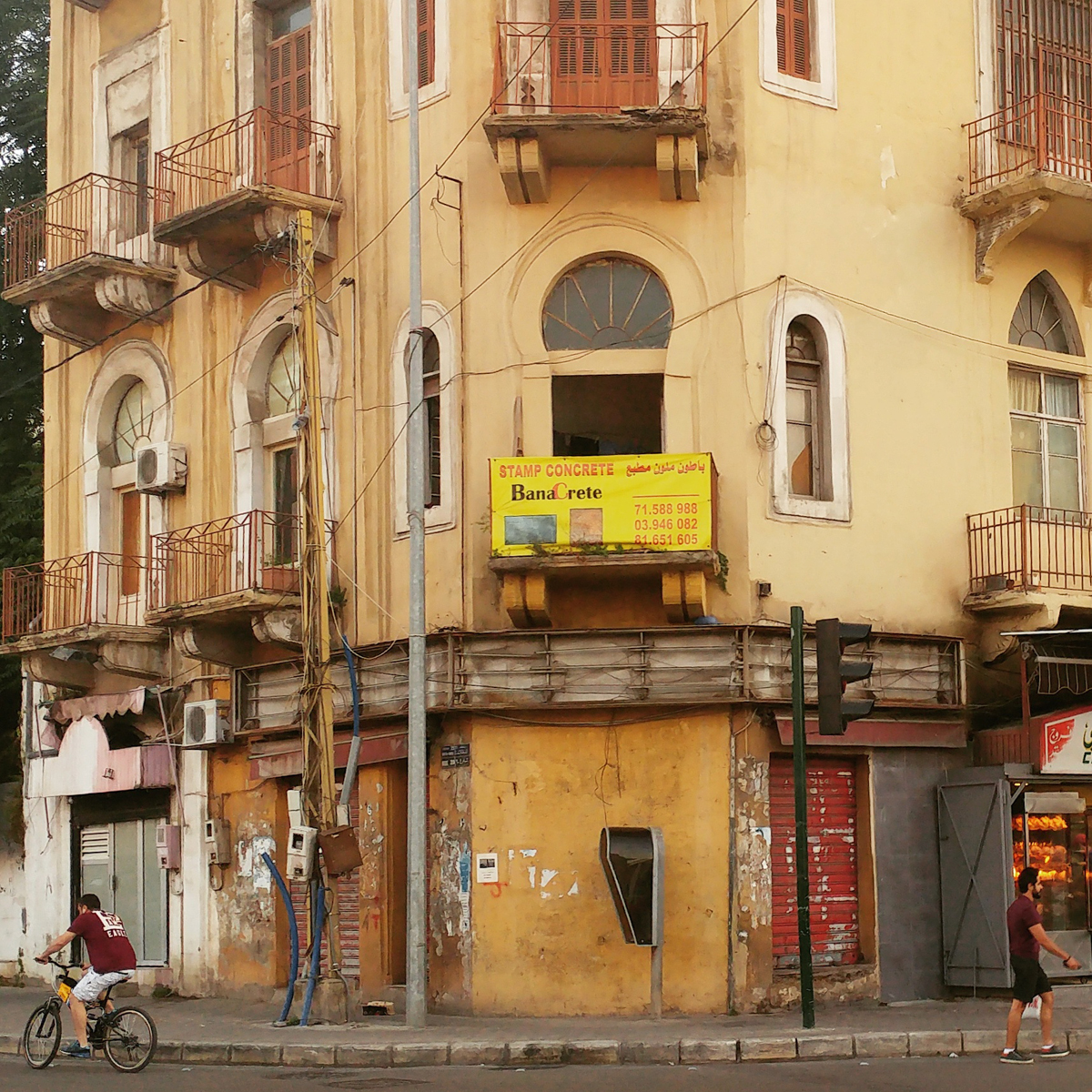
Photo – Antonio Haber
Located in the heart of Beirut, just a stone’s throw from Downtown, the district once housed cultural centers and public libraries. Old heritage homes still stand, partly crumbling but nonetheless charming.
Situated between a dominating road bridge and an old cemetery, Basta is characterized by antique shops with long histories; many owners sit in the shops belonging to their fathers or grandfathers. The shops offer a gateway into other eras, where the history and memories of Lebanon are told through its objects.
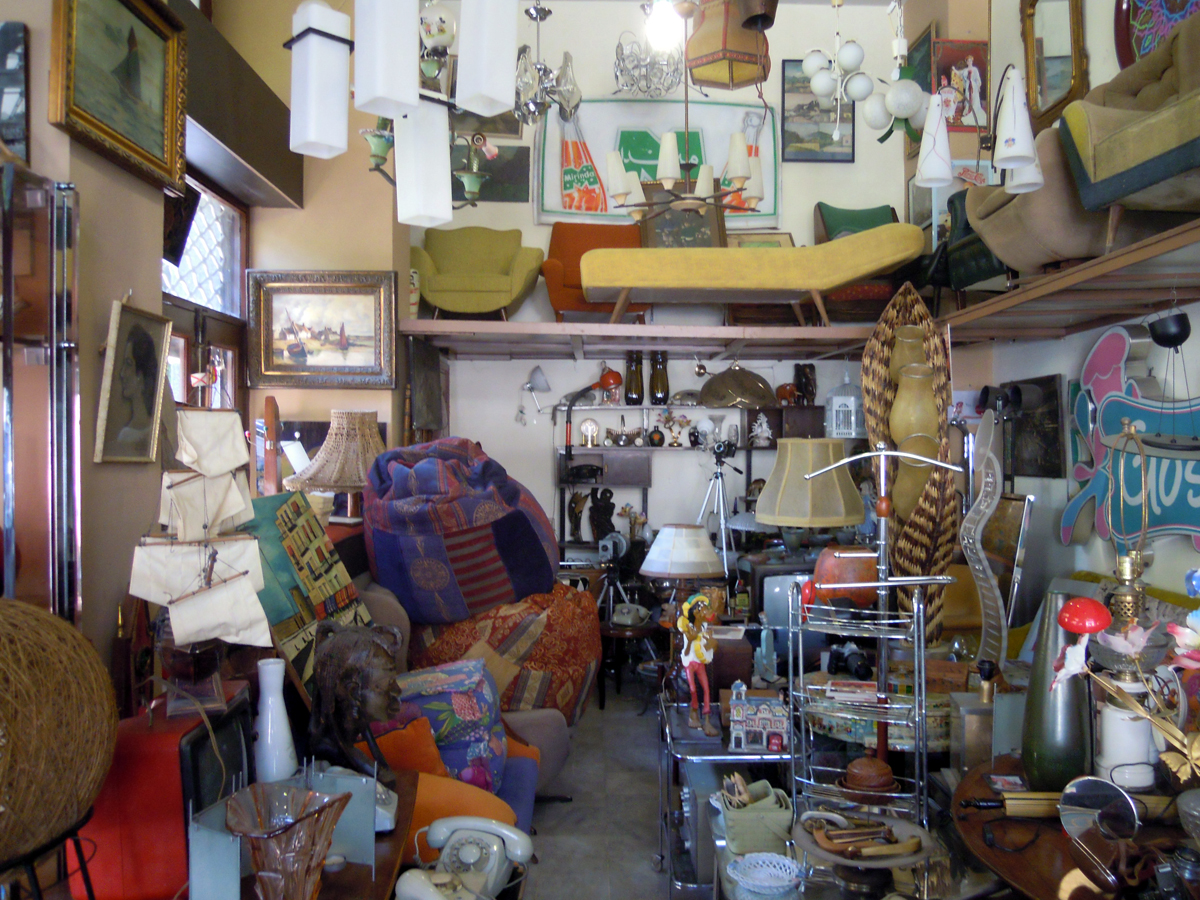 Everything can be found here — ancient carpets from Iran to intricate chandeliers, mother-of-pearl inlay furniture, retro 1950s lamps and little pieces of Lebanese heritage such as photographs of former politicians or old signs of the shops that once punctuated the city. Prices vary from a few dollars to thousands. Some shops also sell shisha pipes and vintage, second-hand clothes. It’s easy to spend an afternoon getting lost in the treasures of Basta’s dusty corners and unraveling the owners’ colorful stories.
Everything can be found here — ancient carpets from Iran to intricate chandeliers, mother-of-pearl inlay furniture, retro 1950s lamps and little pieces of Lebanese heritage such as photographs of former politicians or old signs of the shops that once punctuated the city. Prices vary from a few dollars to thousands. Some shops also sell shisha pipes and vintage, second-hand clothes. It’s easy to spend an afternoon getting lost in the treasures of Basta’s dusty corners and unraveling the owners’ colorful stories.
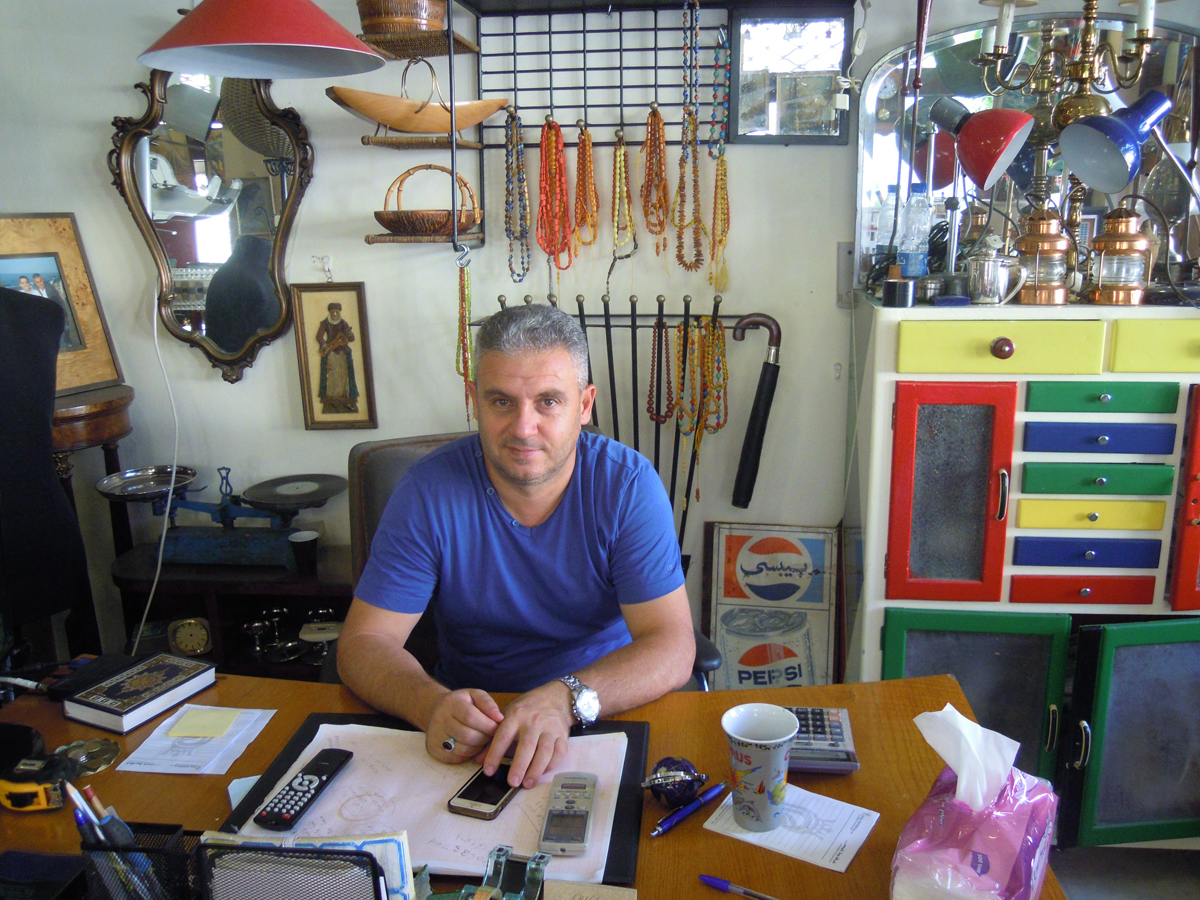 Old Story, close to the entrance of Basta, is hard to miss — its tables and chairs seemingly tumble out the front of its two adjacent shops, as vans regularly pass by to drop off more pieces.
Old Story, close to the entrance of Basta, is hard to miss — its tables and chairs seemingly tumble out the front of its two adjacent shops, as vans regularly pass by to drop off more pieces.
“This job is in my blood,” says its owner Nasser Ammar from an organized wooden desk set among the chaos. He inherited the trade from his family, first working with his uncle and grandfather 20 years ago, returning to the family tradition in Basta after years in Australia. “It’s just because I love this job that I keep doing it. Otherwise, I would be buying my ticket and running away. It’s very hard to live here, but I want my kids to grow up here. We have to survive after all,” he says.
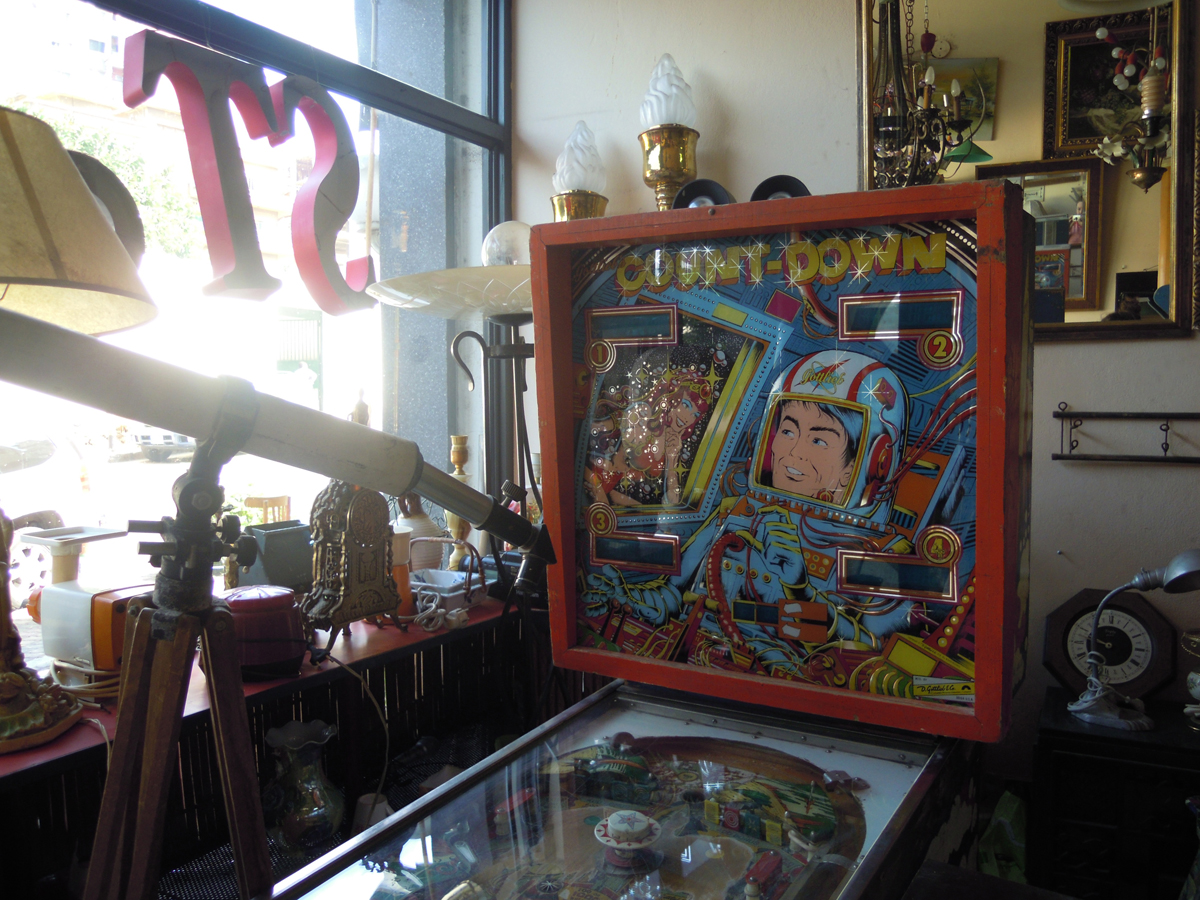 His store is full to the brim. Armchairs from the 1950s with delicate pencil legs and sofas sit on a shelf above, lamps and chandeliers hang from the ceiling, there are half-a-century-old slot and pinball machines and a collection of old photos showing nameless Beiruti families.
His store is full to the brim. Armchairs from the 1950s with delicate pencil legs and sofas sit on a shelf above, lamps and chandeliers hang from the ceiling, there are half-a-century-old slot and pinball machines and a collection of old photos showing nameless Beiruti families.
Located at the top of the street, under the bridge, is the small unassuming shop Ajaj. It’s a simple, half-darkened room filled with beautiful old rugs, where Moussa Ajaj works alongside his father in the family business. “I love my job. I was only four years old when my father opened the shop, so it’s my life,” he says. With a history that goes back to 1975, the family is every bit a part of the neighborhood — and often gather outside for coffee.
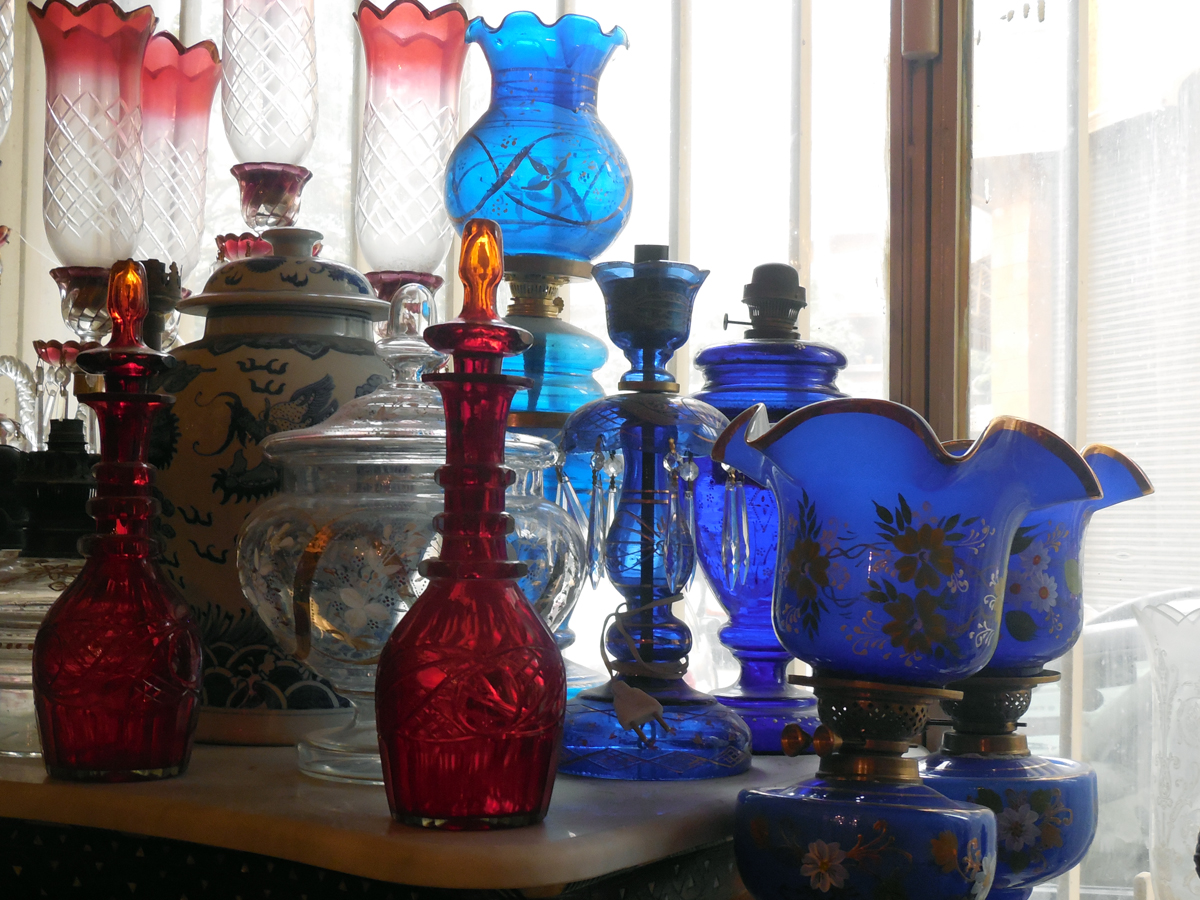 Hassan Hijazi has one of the oldest shops in Basta. Open for over 60 years, he’s certainly an expert when it comes to antiques. He sits behind his wooden desk with old Ottoman handguns lining the wall on his left, and colorful glass pieces behind him.
Hassan Hijazi has one of the oldest shops in Basta. Open for over 60 years, he’s certainly an expert when it comes to antiques. He sits behind his wooden desk with old Ottoman handguns lining the wall on his left, and colorful glass pieces behind him.
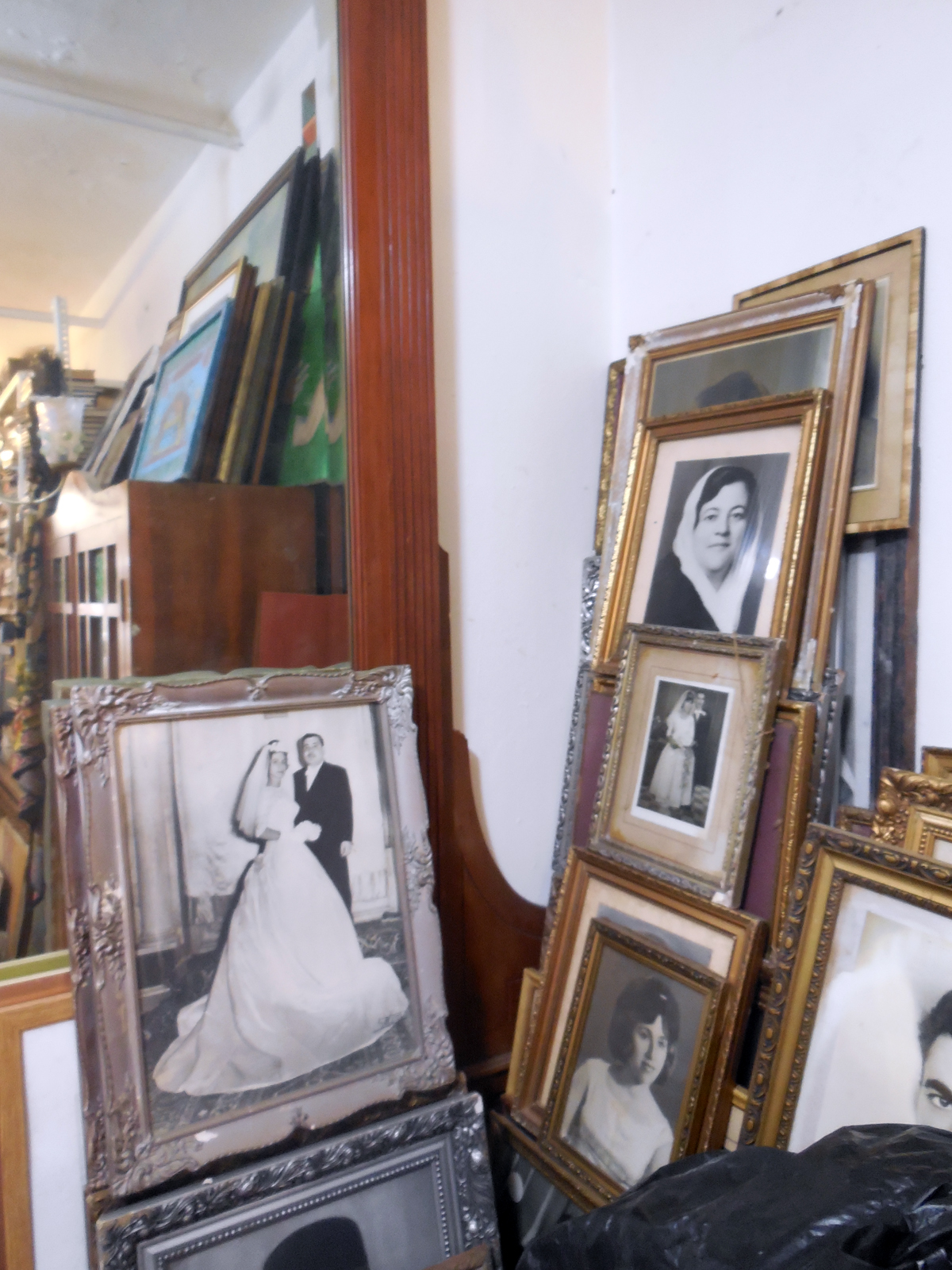 “It’s all old, nothing new,” he says proudly. In the front of his shop, old carpets are piled high, each pattern more intricate than the next; elegant chandeliers hang from the ceiling as well. After relocating in Beirut from the south in 1948, he came to Basta and started an antique shop. “I started with three other guys next to me. We started this antique souk but all of them have died except me,” he says. “There is always work even if it’s slow. Even during the war, business was good.” Over the years he’s brought antiques from all over the world; from France, Syria and London. “I don’t have something specific in mind. I like to see what I’m buying, even if I have to go to Damascus to see it. If I like it, I’ll take it,” he says.
“It’s all old, nothing new,” he says proudly. In the front of his shop, old carpets are piled high, each pattern more intricate than the next; elegant chandeliers hang from the ceiling as well. After relocating in Beirut from the south in 1948, he came to Basta and started an antique shop. “I started with three other guys next to me. We started this antique souk but all of them have died except me,” he says. “There is always work even if it’s slow. Even during the war, business was good.” Over the years he’s brought antiques from all over the world; from France, Syria and London. “I don’t have something specific in mind. I like to see what I’m buying, even if I have to go to Damascus to see it. If I like it, I’ll take it,” he says.
- READ MORE: A Trail Through Basta And Bachoura
Basta is a tight neighborhood full of character. “I know everybody here,” Ammar says, “it’s a nice community.” Where other commercial neighborhoods have come and gone through difficult times, the antique shops here continue to thrive, maintaining a close-to-a-century-old heritage.
Loading

